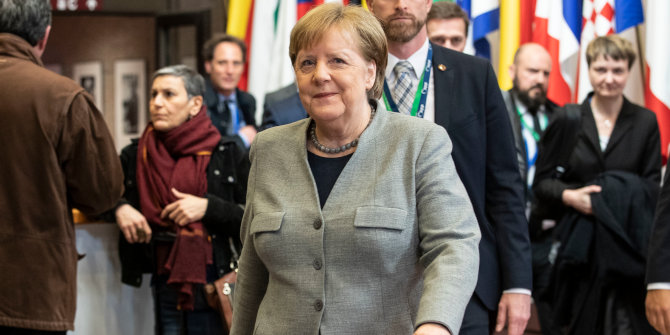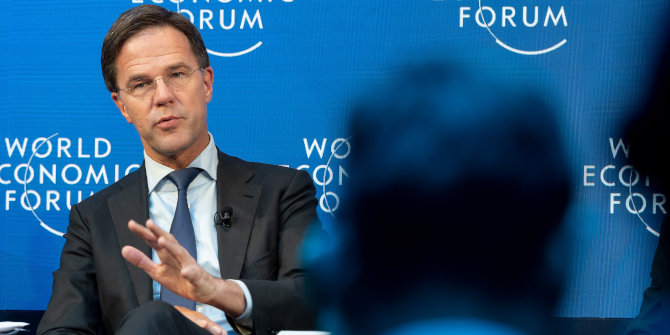Citizenship is often viewed as a great equaliser, but is this always the case? Eleanor Knott examines how citizenship can function both as a source of opportunity and as a vehicle for inequality.
 Eleanor Knott will be discussing The Changing Inequalities of Citizenship at the LSE Festival, Thursday 15 June 2023, 1.00 pm to 2.00 pm
Eleanor Knott will be discussing The Changing Inequalities of Citizenship at the LSE Festival, Thursday 15 June 2023, 1.00 pm to 2.00 pm
As an indicator of privilege, many may never think about their citizenship. Citizenship is a legal status that many hold from birth, whether by ties to parents or territory. Until you cross a border and use your passport, you may not even (or ever) realise the power of such a legal status. But citizenship is a mark of belonging to a state and the gateway to rights and benefits.
As Ayelet Shachar describes, citizenship is a birthright “lottery”. Some gain a legal status of immense opportunity and privilege. Others gain a legal status of disadvantage purely because of where they are born and to whom. Citizens of Syria or Afghanistan need a visa to travel to over 80% of other countries. Citizens of Sweden, Germany, Spain, or France need a visa to travel to fewer than 13% of countries.
The gauntlet of gaining citizenship
Those gaining citizenship by naturalisation often tell a different story. Today, UK citizenship costs £1,330 for an adult and £1,000 for a child, not including the costs of the Life in the UK test, language tests or legal advice. After 13 years of a Conservative government, application fees have risen steeply. For a child, the costs of acquiring UK citizenship – a status conferring vital rights – are much higher than in other states.
The gauntlet to citizenship is expensive, time-consuming and dehumanising for many, not least if your citizenship application is denied. For example, the Home Office has a “good character” clause in evaluating citizenship applications. Such a clause gives discretion in denying citizenship to those who have committed or are suspected of criminal activity, have been “dishonest or deceptive” in their interactions with the UK government, failed to pay taxes, or breached immigration laws.
Another example of a taken-for-granted right in the UK was EU citizenship. For UK citizens, the rights attached to EU citizenship only became visible once they were taken away by Brexit. Suddenly, queuing at EU borders – alongside non-EU citizens from the rest of the world – became a symbol of what was lost.
What was lost by Brexit is even more stark for non-UK EU citizens who lost rights attached to EU citizenship in the UK. The UK government required non-EU citizens in the UK to apply for the legally weaker status of EU Settled Status for those who could prove five years’ residency in the UK or pre-settled Status.
Between inclusionary and exclusionary citizenship
While citizenship can be taken for granted as a legal status, it has the potential to be both inclusionary and exclusionary. It is also a legal status that states can weaponise. For example, in annexing Crimea, Russia coerced Crimea’s residents to become Russian citizens or register as aliens, a status that entailed losing rights.
Citizenship’s potential to be inclusionary is demonstrated by the many states that facilitate the acquisition of citizenship by non-resident communities. Romania, for example, has facilitated routes to Romanian citizenship for Moldovan citizens, among others, who can prove they are descended from citizens of interwar Greater Romania. Since 1998, over a million Moldovans have acquired (or as Romania describes re-acquired) Romanian citizenship.
While demonstrating citizenship’s inclusionary potential, this inclusiveness is towards specific and often ethnicised communities. And the flip side is that push factors for acquiring citizenship from another state can be the exclusionary nature of one’s home citizenship.
At the same time as Romania began its process of acceding to the EU, the rights of Moldovans to travel to Romania started to decline. A border that Moldovan citizens could once cross without a passport became a border than Moldovan citizens needed not only a passport but also a visa to cross. While acquiring Romanian citizenship was costly and time-consuming, it was often considered less “dehumanising” and a more secure status than applying for a visa. Since 2014, Moldovans with biometric passports have gained visa-free access to the EU.
Citizenship as an increasingly two-tier legal status
Holding a legal status does not bestow equal access to rights for all. Instead, several examples from the UK demonstrate the tiered nature of citizenship, which for some is a secure legal status and for others an insecure legal status.
For example, the UK forcibly withdrew citizenship from Shamima Begum, who was trafficked from the UK to join ISIS as a child. As a result, the UK government rendered her stateless because the UK government and courts considered she could acquire citizenship from Bangladesh, despite never having visited, not speaking the language, and being denied entry to Bangladesh.
Similarly, those affected by the Windrush scandal exposed the two-tier nature of citizenship as a legal status in the UK. The “Windrush generation” arrived in the UK over 50 years ago, often as children and from territories the UK considered parts of its empire at the time.
By 2018, many in the Windrush generation found their – and their descendants’ – rights questioned within the hostile environment. Many lost jobs, could not access medical treatment, and had their lives ruined. In the worst cases, the Windrush scandal involved detention and deportation. We still do not know the number affected by the Windrush scandal that was deported by the UK government. And many have still not received compensation.
Those affected by the Windrush scandal assumed they held a secure legal status in the UK. But, the UK government had made such a legal status invisible to the point that it could withdraw it and deem them “illegal immigrants”, having destroyed the landing cards of those arriving in 2010. Even the UK government has evaluated its hostile environment as disproportionately affecting people of colour.
So, next time you cross a border with your passport and have an easy time, do not take it for granted. Not only do you have the financial means to travel and return to a safe home – you have the legal status that permits such easy means of entering and exiting other countries in the first place.
Robtel Neajai Pailey (@RobtelNeajai), Kristin Surak, and Eleanor Knott (@ellie_knott) will be discussing “The Changing Inequalities of Citizenship” at the LSE Festival, Thursday 15 June 2023 1.00 pm to 2.00 pm. The event will be chaired by Armine Ishkanian (@Armish15.
Note: This article gives the views of the author, not the position of EUROPP – European Politics and Policy or the London School of Economics. Featured image credit: Saj Shafique on Unsplash





